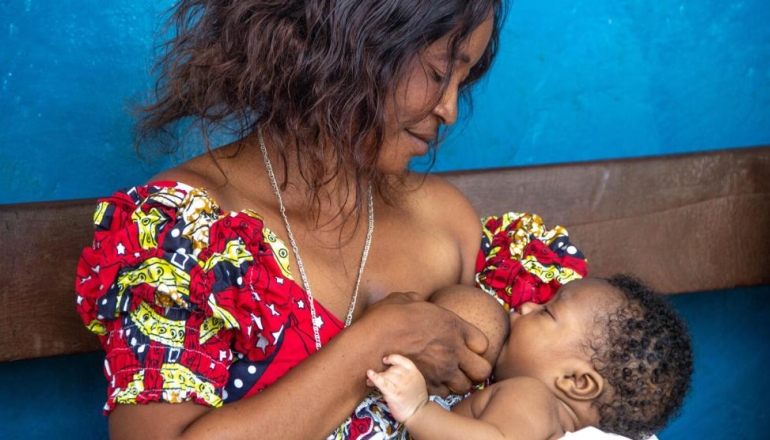Did you know that your nipples have good bacteria, so there’s no need to wash them before breastfeeding? Dr. Michele Griswold, a lactation expert, answers some common breastfeeding questions.
Is breastfeeding easy?
“Breastfeeding is often considered natural and easy, but it varies. It can be easy with the first baby and challenging with the second. It depends on the individual.”
Does breastfeeding hurt?
“If your nipples hurt, don’t stop breastfeeding. Seek help to understand why it hurts and address the issue.”
How much should my baby eat?
“Babies show hunger signs 8 to 12 times in 24 hours. Newborns need to eat a lot because they grow rapidly, doubling their birth weight in the first six months.”
Should I wash my nipples before breastfeeding?
“No need to wash your nipples before breastfeeding. Good bacteria on the breasts and around the nipple help prevent infections.”
When should I start breastfeeding?
“The first hour after birth is crucial. Skin-to-skin contact helps babies calm down and start seeking the breast within 30 minutes to one hour.”
What should I eat while breastfeeding?
“Most mothers can follow their normal diet. Babies taste what mothers eat through breast milk, preparing them for table foods at around 6 months.”
When should I wean my baby?
“Babies naturally start weaning around one year due to developmental changes. They become less focused on their mother and more on exploring the world.”
Do I have to wean when I go back to work?
“We hope mothers returning to work don’t have to wean. They need support from family, workplace, and community to continue breastfeeding. It’s not just about food; it’s part of nurturing care for a child’s lifelong growth and well-being.”
This information comes from a UNICEF Mini Parenting Master Class with Dr. Michele Griswold, a lactation consultant, registered nurse, and breastfeeding advocate. She represents the International Lactation Consultant Association to the WHO/UNICEF Global Breastfeeding Collective, promoting support for mothers to breastfeed.
